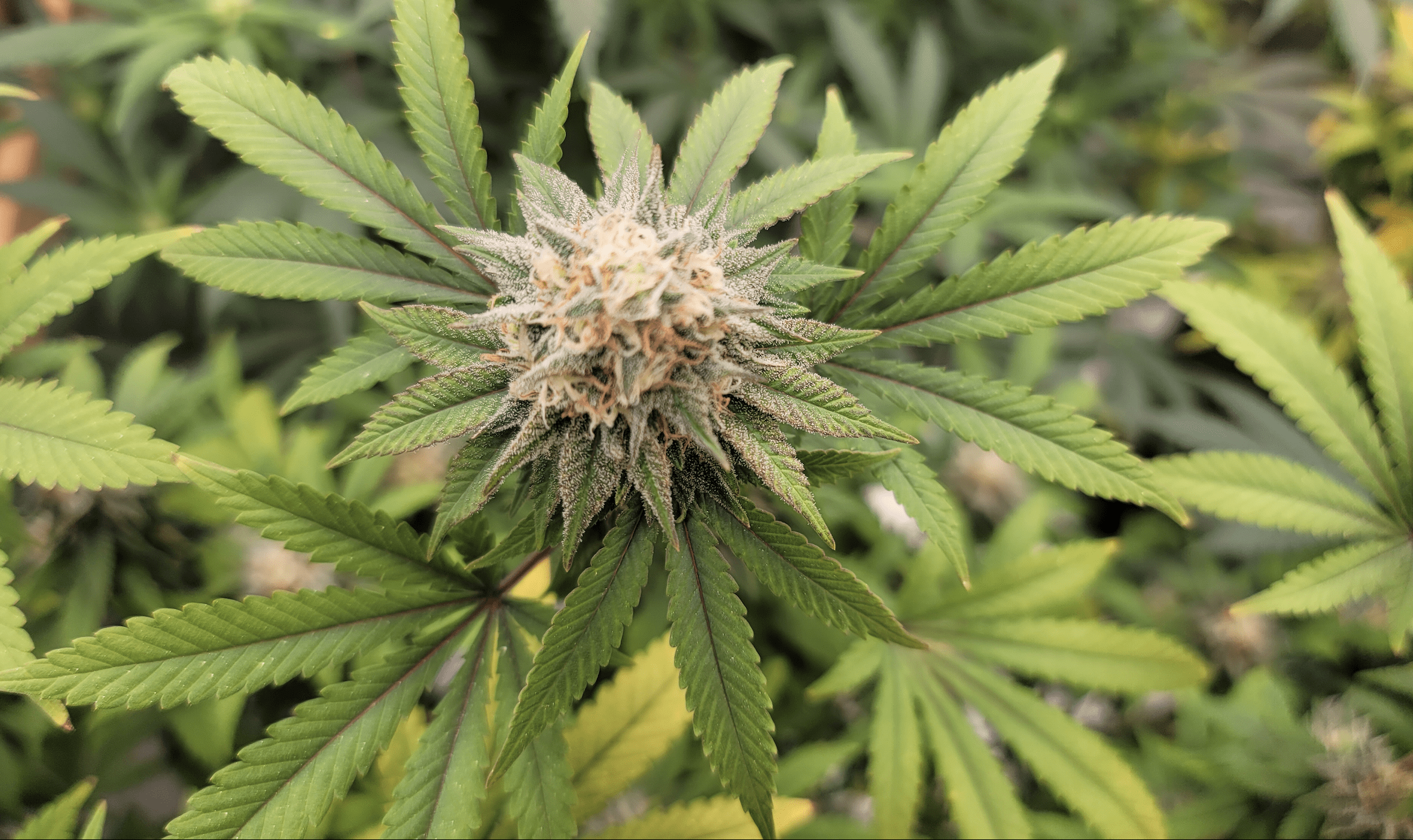Politics
South Dakota Marijuana Activists Unveil Four Legalization Initiatives For 2022 Ballot, Pending Supreme Court Decision

If the South Dakota Supreme Court declines to overturn a February ruling that nullified a voter-approved marijuana legalization initiative, activists are going to go all-in on the ballot initiative process again to ensure that the reform is enacted in 2022.
Late last week, they filed four separate legalization measures with the state Legislative Research Council—the first step toward putting the issue before voters next year. South Dakotans for Better Marijuana Laws says the sponsors will drop the proposals if Amendment A, which was approved by voters last November, is fully restored by the state’s high court. But for now, they’re getting the process rolling in case the judiciary doesn’t uphold the will of the electorate.
The four initiatives share some basic provisions, but they each take a unique approach to the policy change. There’s also a fifth measure that the group is backing which would eliminate a single-subject rule for the ballot process—a policy that led to a state judge deeming the 2020 recreational measure unconstitutional.
“I’m proud to be a sponsor of these initiatives because they represent the will of the voters,” Melissa Mentele, who spearheaded a separate medical cannabis legalization initiative that was overwhelmingly approved by voters last year, said in a press release. “South Dakotans support cannabis legalization. If Amendment A is repealed, then we need to be prepared to put legalization on the ballot again.”
Tim Johnson, a former U.S. attorney, is also a sponsor of the new measures.
Activists recognize that the state’s ballot laws means that they are up against the clock to get any of the measures approved for circulation and to collect enough to qualify. They will only pursue putting one of the cannabis-related initiatives on the ballot if Amendment A remains overturned.
After going through the Legislative Research Council, the initiatives must then be accepted by the state attorney general and secretary of state. At that point, advocates will have until November 8 to collect at least 33,921 valid signatures for a constitutional proposal and 16,961 for a statutory measure.
South Dakotans for Better Marijuana Laws is supporting two measures of each kind. Here’s what each of the four legalization proposals would do:
Constitutional Approach 1
- Possession of up to one ounce would be legal for adults 21 and older.
- People could grow up to three plants for personal use. For households with more than one adult, there would be a six-plant cap.
- The legislature would be required to develop regulations for licensing of retail sale, cultivation, processing and testing.
- Public consumption would be banned and punishable by a civil fine.
- Employers would not be prevented from imposing restrictions on workers’ marijuana use.
Constitutional Approach 2
- Possession of up to one ounces would be legal for adults 21 and older.
- People could grow up to three plants for personal use. For households with more than one adult, there would be a six-plant cap.
- Retail sales would not be legalized by the measure, but it wouldn’t prevent lawmakers from enacting commercialization later.
- Public consumption would be banned and punishable by a civil fine.
- Employers would not be prevented from imposing restrictions on workers’ marijuana use.
Statutory Approach 1
- Possession of up to one ounces would be legal for adults 21 and older.
- People could grow up to three plants for personal use. For households with more than one adult, there would be a six-plant cap. People could not cultivate their own plants, however, if they lived in a jurisdiction that has marijuana retailers.
- The Department of Revenue would be responsible for developing regulations and issuing cannabis business licenses.
- Regulators would have until July 1, 2023 to issue rules for the program.
- They would have to approve enough licenses to mitigate the influence of the illicit market, but not so many that the industry becomes oversaturated.
- A 15 percent excise tax would be imposed on marijuana sales.
- After covering the costs of implementation, half of the remaining tax revenue would go to the state’s public schools and the other half would go to the general fund.
- Localities would be able to opt out of allowing cannabis businesses to operate in their jurisdiction.
- Public consumption would be banned and punishable by a civil fine.
- Employers would not be prevented from imposing restrictions on workers’ marijuana use.
Statutory Approach 2
- Possession of up to one ounces would be legal for adults 21 and older.
- People could grow up to three plants for personal use. For households with more than one adult, there would be a six-plant cap.
- Curiously, while sales would not be legalized by this measure, it also contains a provision that says home cultivation is only allowed in jurisdictions that don’t have marijuana retailers. Lawmakers would be able to enact commercialization later, however.
- Public consumption would be banned and punishable by a civil fine.
- Employers would not be prevented from imposing restrictions on workers’ marijuana use.
“If Amendment A is fully restored by the South Dakota Supreme Court, then we would not move forward with these initiatives,” Matthew Schweich, deputy director of Marijuana Policy Project and campaign director of South Dakotans for Better Marijuana Laws, said. “If Amendment A is struck down, then we want the option of returning to the ballot next year. We are filing these initiatives now because the deadline for completing a signature drive is quickly approaching.”
“We remain hopeful that the South Dakota Supreme Court will make the right decision and restore Amendment A. However, we need to be prepared for any potential outcome,” he said. “These four cannabis legalization initiatives represent different approaches that could accommodate different rulings in the Amendment A case. Only one would be advanced to the ballot.”
“Now is the time to get the ball rolling for 2022. Hopefully, it isn’t necessary.”
While advocates remain frustrated over a February ruling that invalidated the 2020 adult-use legalization initiative, they’re at least encouraged that the separate medical cannabis measure was approved and the law took effect last week.
Technically, marijuana cardholders can now legally have up to three ounces of cannabis—but only if they have a valid registration card, and regulators have until November 18 to begin issuing those. Patients who have an out-of-state medical marijuana card or one issued by a tribe of which they are a member, however, can now legally possess cannabis without arrest under guidance issued last week by the state Highway Patrol.
The guidance also stipulates that, even for a person without a medical cannabis card, they will not be arrested as long as they are in possession of fewer than three ounces, claim to have a debilitating medical condition and can provide documentation related to that condition from a medical doctor.
Home cultivation of up to six medical cannabis plants is also now legal for cardholders. But again, that policy change is still contingent on cards being issued.
Outside of South Dakota, advocates across the county are also already working on number of state-level cannabis initiatives for 2022.
Missouri activists, for example, revealed last month that they plan to put a recreational marijuana legalization measure before voters next year.
Nebraska marijuana activists have announced plans for a “mass scale” campaign to put medical cannabis legalization on the state’s 2022 ballot.
Two measures were submitted in Wyoming last month to place medical cannabis legalization and adult-use decriminalization measures before voters in 2022.
Also last month, Idaho activists filed a measure to legalize marijuana possession for adults that they hope to place before voters on the 2022 ballot. That’s in addition to a separate medical cannabis effort in the state.
North Dakota activists are formulating plans for a marijuana legalization measure after lawmakers failed to enact the reform this session.
Meanwhile, the Florida Supreme Court has blocked two cannabis legalization initiatives for which activists had already collected thousands of signatures.
Locally, a newly established Texas progressive group unveiled a campaign last month to put an initiative to decriminalize marijuana possession and ban no-knock warrants on this November’s ballot in Austin.
Ohio activists also recently qualified a measure to decriminalize cannabis to appear on a local 2021 ballot—the first of dozens of reform proposals that could go before voters this year as signature gathering efforts continue across the state. The group is also working to put marijuana initiatives on local ballots in South Carolina and West Virginia.
Read the text of the South Dakota marijuana legalization initiatives, and the single-subject proposal, below:
South Dakota 2022 Marijuana… by Marijuana Moment
Congressional Lawmakers Support Using Drones To Spot Illegal Marijuana Grows On Public Lands
Photo courtesy of Mike Latimer.
















